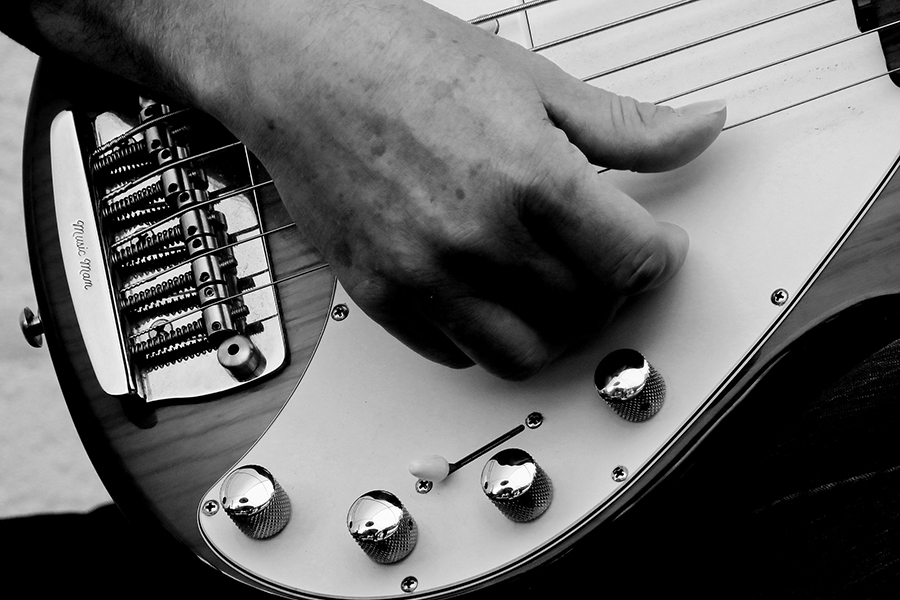If you follow our blog you’ll know that we’re lucky enough to have a fairly large number of musicians working at our agency, and that has led to a strong undercurrent of musical thinking that runs through the company.
The other day it occurred to me that there’s one thing musicians are really good at, and particularly well prepared to deal with – making mistakes. For musicians every day is filled with mistakes, piling up in the hours of practice, rehearsal, and performance. And yet musicians are rarely flustered by them, they roll off like water from the proverbial duck’s back. By focusing on how musicians approach mistakes we can learn some valuable lessons that can be applied to aspects of our business lives.
#1 – Start at the beginning
“Hi, I’m Matt and I make Mistakes.” There, I said it – and I feel much better now that it’s out in the open. We all make mistakes, it’s going to happen – you make them, I make them (my colleague Jerry Buckley would bet you dollars to donuts that there’s a missing possessive apostrophe in this article somewhere). Being afraid of mistakes often leads us to the paralysis of inaction – we feel safer doing nothing. I say don’t just accept mistakes – embrace them. Mistakes are opportunities to learn – so the more mistakes you make, the more you learn.
When a young musician picks up an instrument for the first time the results are usually…well, let’s just say they won’t be making the billboard charts. The image of the small child scratching away at a violin and making cat-dying noises is a cliche that is well entrenched in our collective psyche. Even a well-trained, accomplished musician will make mistakes when picking up a new piece of music for the first time. If you’re not making mistakes at what you’re doing – it’s too easy. And if it’s not challenging you’ll never get any better – you’ll be playing beginners’ scales for the rest of your life – they may be the best scales ever played – but no one wants to listen to them.
#2 – Be prepared (to play the wrong notes)
No, not like the Boy Scouts, and I don’t mean agonizing over back-up plans for every possible contingency, what I mean is be prepared for how you will react when a mistake happens. First, stay calm – freaking out rarely solves anything. If it’s your fault – own it. If it’s someone else’s fault – go ahead and own that one too – finger pointing and blame games never solve anything.
When rehearsing a piece of music together a group of musicians doesn’t waste time pointing fingers – whoever made the mistake acknowledges it (everyone knows anyway, right?), and they’ll go back and rehearse that passage again. They also know when to move on – if it can’t be fixed quickly they’ll move on and trust that the individual will work it out on their own time. This is key in business as well – be ready to deal with the mistakes as they come up, don’t get flustered, do what you can in the moment to fix them as best you can, move on, and go back for a more detailed analysis later. As Steve Jobs said: “Sometimes when you innovate, you make mistakes. It is best to admit them quickly, and get on with improving your other innovations.”
#3 – Love the Wrong Notes
When a musician picks up a new piece of music and reads through it for the first time there will be some passages that come very easily, and others that sound like walking up a narrow, un-even flight of stairs, drunk, wearing two different shoes, and carrying a wet paper bag full of pots and pans. Those passages – where the mistakes happen – is where the musician will focus the majority of their time, because that’s where the learning happens. After you’ve picked up the pots and pans go back to the mistake and pick it apart, look at it from different angles, turn it upside down and inside out.
Musicians rely a lot on muscle memory – that’s what all the practice is for – so you don’t have to think about how to play this note, then this note, etc. The only way to acquire that muscle memory (or any skill) is to do it repeatedly. Once you’ve isolated where the mistake happened break it down into small, fixable chunks, start slowly, and repeat until it becomes automatic. In business this may mean setting aside some time every day to focus on the task – complicated formulas in excel, how to calculate budgets, learning a new software package. It takes some discipline, but the hard work will pay off in the end.
#4 – Get an audience
Musicians love to get other musicians to listen to them. Playing for a small audience, like one or two people, can help work out the kinks. It heightens your awareness of your performance, and provides a platform for some honest critical feedback. This works in other situations as well – bounce your idea off a couple of colleagues that you respect – and not just the ones who will say yes because they’re your friends – honest criticism and the openness to accept it are a key part of growth. Sometimes just articulating an idea to another person will help you gain new insights.
#5 – Get out of the practice room
If you’re not familiar with the music school environment, in any music building there is typically an entire floor (usually in the basement) devoted to practice rooms, 10 x 10 cells with no windows, a beaten up old chair, and a barely tuned piano. Music students will sequester themselves in practice rooms for hours upon hours every day to hone their craft.
But at some point they have to step out onto the stage, into the light of day, and perform in front of other people. This, as they say is where the rubber meets the road, but despite the hours of practice and the attention devoted to every note and nuance, any musician will tell you there’s no such thing as a perfect performance.
Perfect will never happen – no matter how much you work something, whether it’s a particularly finger-twisting passage of a Beethoven piano sonata, or a 60-page PowerPoint deck for your next RFP – at some point it has to go public.
CODA: (that’s a musical term for the little bit at the end to wrap things up):
None of this is to say that you should rush into any new situation, business opportunity, meeting, proposal, etc, heedlessly, with any thought or preparation, prepared to casually dismiss mistakes. Before working on any new piece musicians will spend a good bit of time studying it, looking for the difficult areas, planing how they will approach a certain passage, mapping out the places they need to focus on. There’s significant amount of upfront analysis before taking the plunge.
Mistakes are part of everyday life, they are unavoidable. Accepting that, and conditioning ourselves on how we will react to them can make a huge difference in both our personal and business lives. Focus on the learning that can happen and embrace the opportunity for positive change. Practicing this in the business world this can also help to create an organizational culture based, not on the fear of messing up, but on confidence, ownership and accountability.
In the words of the great Johnny Cash:” You build on failure. You use it as a stepping stone. Close the door on the past. You don’t try to forget the mistakes, but you don’t dwell on it. You don’t let it have any of your energy, or any of your time, or any of your space.”





